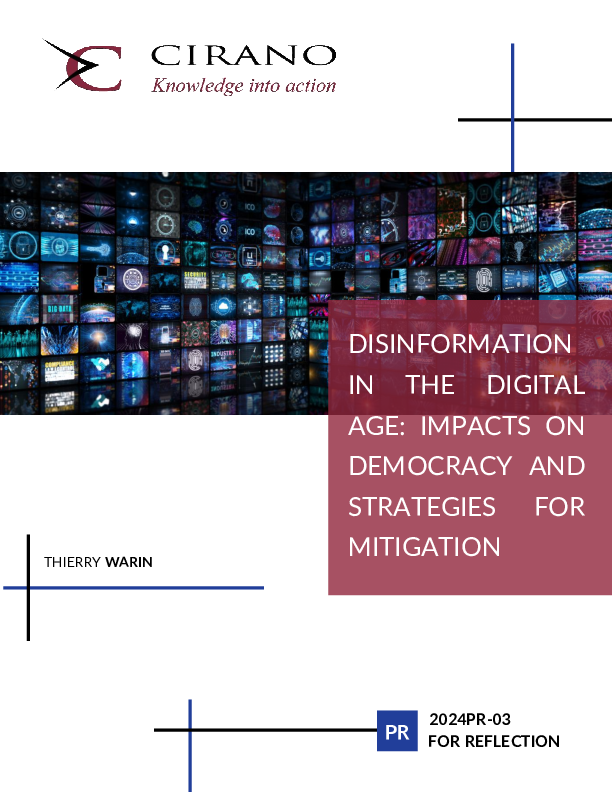Disinformation in the Digital Age: Impacts on Democracy and Strategies for Mitigation
Disinformation has become a substantial threat to democratic institutions and societal stability, intensified by the proliferation of social media. Traditionally spread through media like newspapers and television, information was controlled by gatekeeping mechanisms. However, the rise of social media has changed this dynamic, allowing rapid, widespread dissemination without traditional checks. Algorithms prioritizing engagement amplify sensational content, facilitating the spread of falsehoods.
This paper examines the extensive impact of disinformation, including the erosion of public trust, distortion of democratic processes, and manipulation of electoral outcomes. It traces the evolution of disinformation from traditional media to digital platforms, emphasizing the need for scientific research to develop detection technologies and effective policies. Strategies to combat disinformation include enhancing digital literacy, increasing transparency of information sources, and implementing regulatory frameworks for social media accountability. AI-driven tools and international cooperation are essential to safeguard democratic integrity. It is crucial to reflect on and discuss these issues to develop comprehensive and effective solutions.




